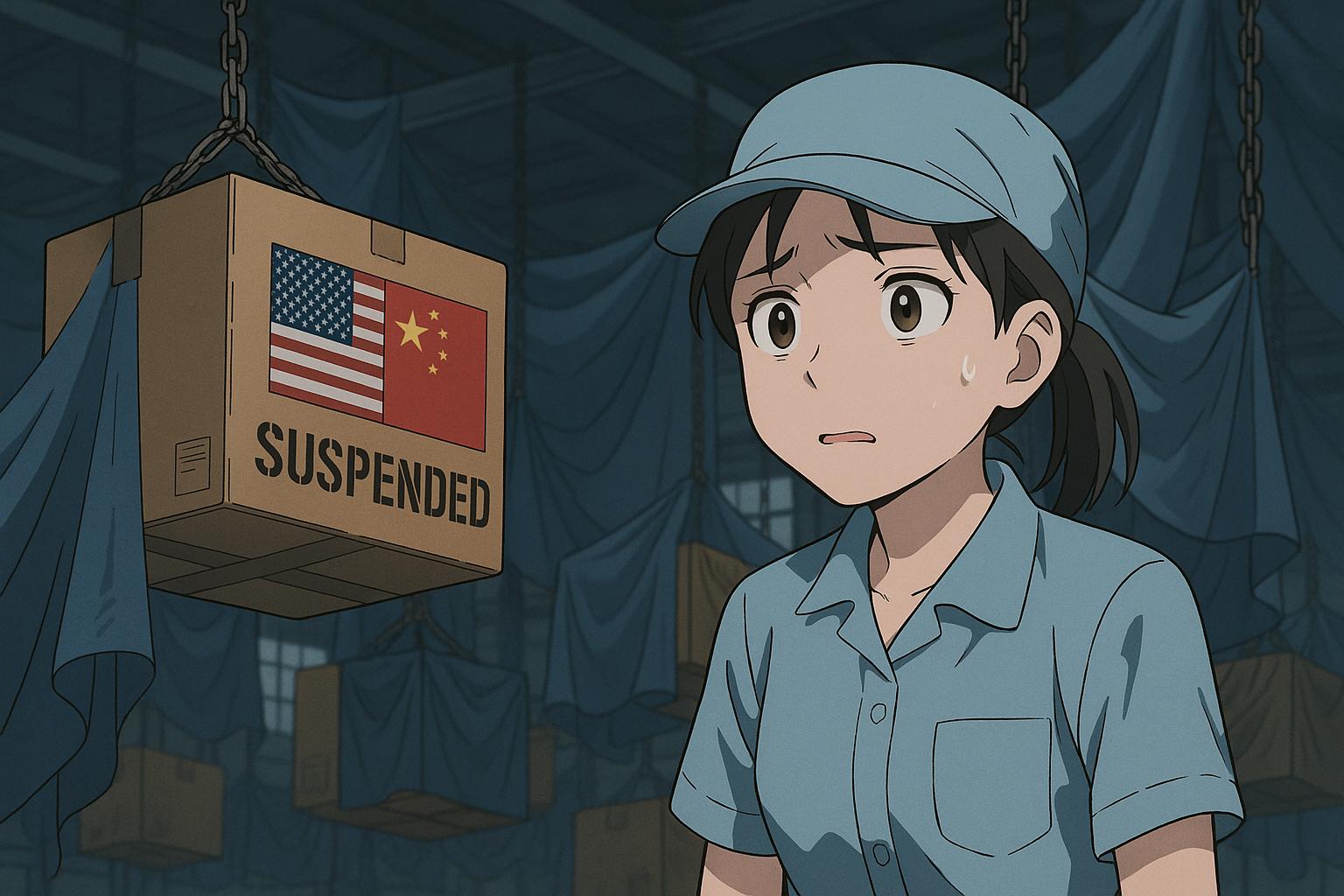UK toy firm Character Group has expressed concerns over the uncertainties in its trading environment in the United States, following its decision to pause shipments of Chinese-made products. The company, known for popular toy lines like Peppa Pig and Fireman Sam, recently reported that its global sales have been affected by a notable shift in customer behaviour, as caution prevails in the marketplace.
This pause stems from the alarming escalation in tariffs imposed by the U.S., which recently saw a sharp increase to 145% on Chinese imports. In a tit-for-tat response, China retaliated with its own tariffs, raising rates on certain U.S. goods to 125%. Such drastic measures prompted Character Group to revise its financial outlook, pulling its targets for the year in light of growing uncertainty.
The situation took a slight turn for the better earlier this week when discussions led by U.S. President Biden saw a reduction in tariffs to 30% under a temporary agreement aimed at easing trade tensions. This reduction has sparked some cautious optimism within the industry. Still, Character Group noted that the uncertainties surrounding tariffs remain a challenge, with the company highlighting that sales to the U.S. represent about 20% of its total revenue, most of which comes from products manufactured in China. They optimistically suggested that the tariff change provides a glimmer of hope for a future resolution, although they tempered this with the acknowledgment that significant uncertainties remain.
The broader picture for the toy industry, however, is less encouraging. Reports indicate a worrying crisis confronting many toy manufacturers hit hard by the elevated tariffs, with nearly half of small and mid-sized toy firms in the U.S. bracing for potential bankruptcy. Similar cases can be seen across the industry, such as Huntar Company Inc., a U.S.-owned factory in China which has been forced to halt production and lay off employees due to the crippling tariffs. CEO Jason Cheung articulated the complex challenges they face in relocating operations, as they seek to navigate the high costs and logistical hurdles involved—very real consequences that underscore the fragility of businesses in these turbulent times.
Furthermore, air freight capacity between China and the U.S. has experienced a nearly 30% drop as manufacturers adjust to altered market conditions, following the suspension of specific tariff exemptions for low-value shipments. Airlines that once thrived on booming e-commerce demand are now scrambling, complicating the shipping landscape. Major players in this sector are being forced to rethink their logistics strategies, considering a pivot back to sea shipping to mitigate ongoing disruptions.
Even with the brief respite from heightened tariffs, the decision from Character Group to pause shipments reflects a trend that many companies are grappling with—an urgent need to reassess supply chains and their reliance on Chinese production. VTech, for example, is relocating its U.S.-bound production out of China, a proactive measure against long-term risks posed by tariff volatility. This move, while portraying a commitment to the U.S. market, exemplifies the pressures facing manufacturers unable to absorb the escalating costs tied to tariffs.
As the toy industry collectively faces these myriad challenges, the ramifications extend beyond individual companies; these trade disputes ultimately impact consumers who may face higher prices as businesses adjust to a shifting economic landscape. With the holiday season on the horizon, many businesses are already feeling the pressure to resume shipments amidst fears of potential bottlenecks and rising operational costs. The uncertainty and complexity of the current trading environment demand not just an adaptation in strategy but a broader conversation about achieving long-term stability—an elusive goal in today’s geopolitical climate.
Reference Map
- Paragraph 1: [1]
- Paragraph 2: [1]
- Paragraph 3: [4]
- Paragraph 4: [3]
- Paragraph 5: [2]
- Paragraph 6: [5]
- Paragraph 7: [6]
- Paragraph 8: [7]
Source: Noah Wire Services
